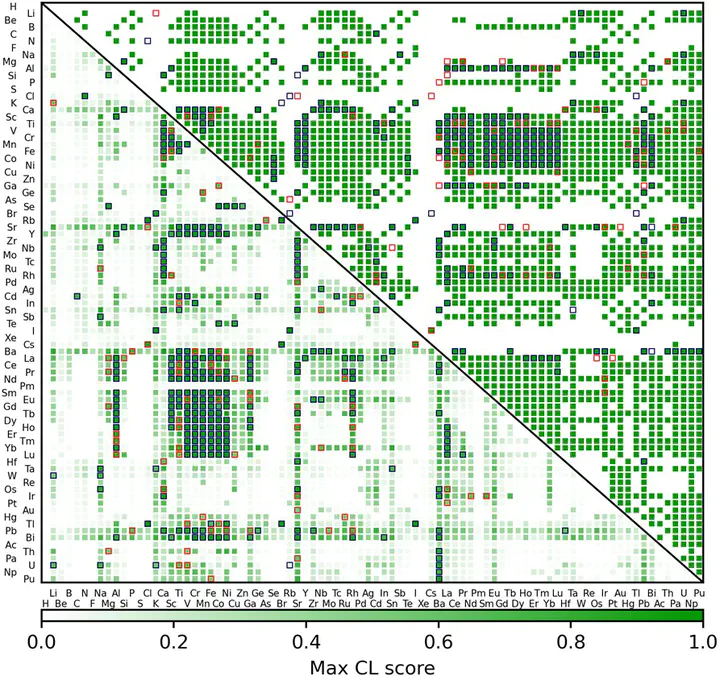Perovskite Synthesizability using Graph Neural Networks

Abstract
Perovskite is an important material type in geophysics and for technologically important applications. However, the number of synthetic perovskites remains relatively small. To accelerate the high-throughput discovery of perovskites, we propose a graph neural network model to assess their synthesizability. Our trained model shows a promising 0.957 out-of-sample true positive rate, significantly improving over empirical rule-based methods. Further validation is established by demonstrating that a significant portion of the virtual crystals that are predicted to be synthesizable by our model have already been indeed synthesized in literature, and those with the lowest synthesizability scores have not been reported. While previous empirical strategies are mainly applicable to metal oxides, our model is general and capable of predicting the synthesizability across all classes of perovskites, including chalcogenide, halide and hydride perovskites, as well as anti-perovskites. We apply the method to identify synthesizable perovskite candidates for two potential applications, the Li-rich ion conductors and metal halide optical materials that can be tested experimentally.